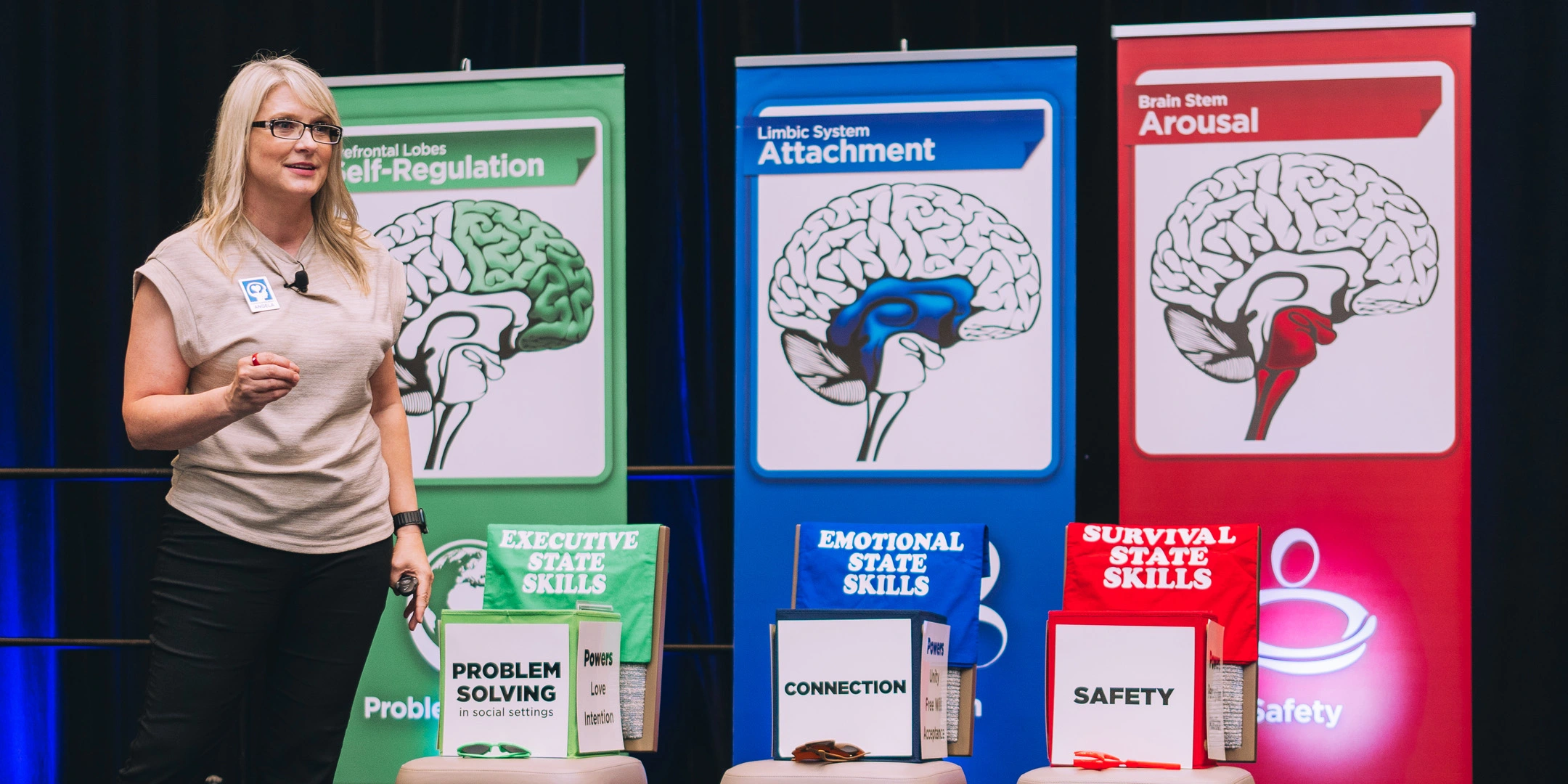Empowering Educators of Students 0-5 to Overcome Tough Challenges
Delivering quality education during a student’s most foundational stages of development can be a daunting task at a time when early childhood educators are faced with tough challenges, including extreme student behavior issues, program funding concerns, workplace turnover and understaffing, lagging parental and/or administrative support, low compensation, lack of respect for the profession, and heightened safety concerns.
Every early childhood educator deserves access to the practices essential for their own well-being and success, and the wellness and achievement of the children in their centers. Moving through your day more easily, feeling more fulfilled by your work, connecting more deeply with your students and your community, and leaning into your true power as a “meaning-maker” for young children are goals that are all within your reach. With the powers and skills of Conscious Discipline supporting you in 2024, you can craft a secure foundation for children without sacrificing your own wellness in the classroom.
Why is Self-Regulation Important for Early Educators?
Though somewhat cliche, there is a reason why some return to the, “put your mask on first” metaphor in times of conflict and/or upset. When you are dysregulated, it is simply not possible to navigate difficult situations successfully or help a child regulate an upset inner state. You cannot teach or offer a skill you haven’t internalized, applied, and modeled yourself.
Other professions may allow for time and space away to “quiet the noise,” but that’s not the reality of an early childhood classroom. Things happen quickly—There’s red paint all over the carpet! Johnny had an accident! Beth stuck a bead up her nose! He hit me! It’s time for lunch! —And you must be ready to handle it all.
Conscious Discipline’s adult-first self-regulation practice, including the Five Steps to Self-Regulation, provides actionable and transformational pathways for restoring regulation to your own brain and body. That kind of self-regulation will help you bring your calm, regulated self into moments of distress and conflict so you can utilize children’s everyday upsets to model self-regulation and teach healthy skills.
First Thing’s First: Co-Regulation
Children lack the meta-cognition to regulate themselves; we must co-regulate and coach them in strategies for self-regulation. We can guess, based on the reported stressors and challenges, that many early childhood educators have been functioning with a moderate to severe level of dysregulation. In centers nationwide, educators echo, “We’re tired, we’re overworked, we’re overwhelmed!” With the adults in the room feeling this way, it makes sense that dysregulated student behavior continues to rise, creating a vicious cycle.
Self-regulation and co-regulation have the power to end this cycle. Without the safety of co-regulation with a composed adult, children’s brain development, meaning-making and growth are impaired, and the challenging behaviors that stem from dysregulation continue. The Five Steps for Self-Regulation provide an accessible bridge from stress and upset to the power to identify, welcome, befriend, soothe and manage emotions. Self-regulation is the foundation on which we build the safety, trust and connection that wires young brains for key outcomes like cooperation, attention, impulse control, and learning.
What You Do Matters: Your Power as a Meaning Maker
There is a common misconception that early education exists primarily to instill the basic skills and academic readiness needed for later schooling. Early education goes so much deeper than that. Conscious Discipline Certified Instructor Angela Fraley refers to early childhood educators as, “birth to five advocates” and “foundation builders.” There is ample evidence to support those titles.
Research shows that the first five years of life are instrumental for brain development and the creation of mental models. A mental model is like a blueprint for the way we perceive our external world. Mental models are our inherent beliefs about ourselves and the world around us. Early childhood educators have the power to shape children’s creation of these mental models in ways that will impact them for the rest of their lives. Examples of some common mental models include:
- An obedient child is a sign of a good parent/teacher.
- The struggle proves it’s worthwhile.
- If you want something done, do it yourself.
- Emotion is a sign of weakness.
- I’m better than those who look or behave differently than me.
- Good things come to those who wait.
- I should be ashamed of myself.
A focus on safety and connection helps in the creation of healthy mental models surrounding self-concept, worthiness, security, agency, trust, and more. As an educator working with children 0-5 in particular, this effort is essential to healthy development. Utilization of the Feeling Buddies, the Kindness Tree and the Safe Place, routines like the Brain Smart Start, and rituals like I Love you Rituals, Greeting Rituals, and Wish Wells are powerful positive shapers of young minds. According to Conscious Discipline Certified Instructor Kenedria Thurman, “Making meaning is a powerful way to start lifelong connections of learning and development.” Reframing the narrative of harmful and/or limiting mental models that children may hold is one of the most critical components of being a meaning-maker.
If you are ready to feel less stressed and better able to handle the day’s challenges, and to be a co-regulator and meaning-maker for the children in your care, Conscious Discipline’s February event in Costa Mesa, CA is a great place to start. Early childhood experts Angela Fraley and Kenedria Thurman will enlighten and inspire you at Brain Smart Beginnings, on February 1-2. Join us to restore your well-being and help the young minds in your care thrive.
Resources:
- National Association for the Education of Young Children (NAEYC) Standards Aligned with Conscious Discipline
- Early Childhood Educator’s Perceptions of Conscious Discipline
- TeachStone Highlights Conscious Discipline as Compatible with CLASS Use in Head Start Agencies
- Mindfulness in Adults: Papers Supporting Conscious Discipline’s Framework




